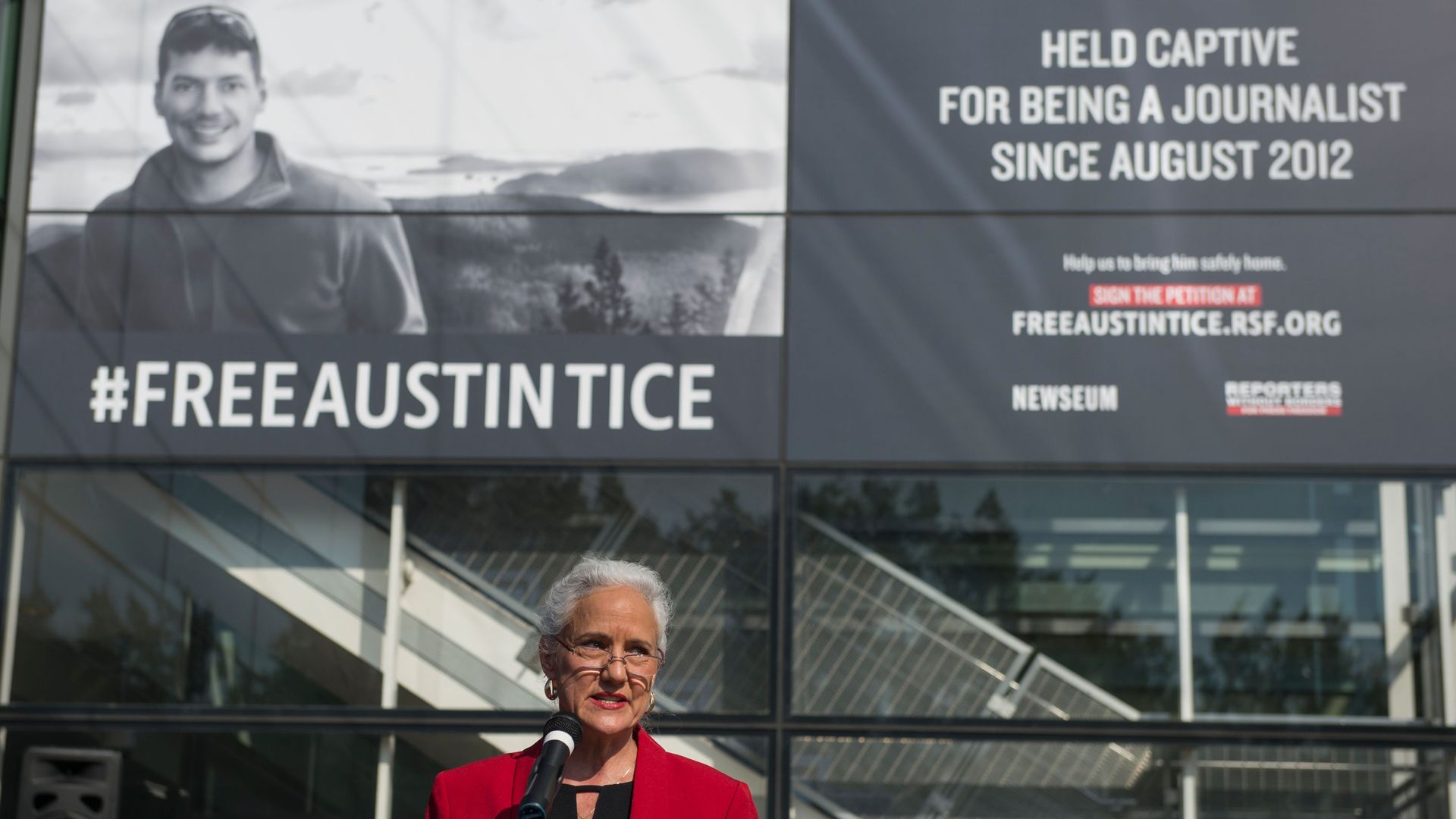Exclusive: Austin Tice's mother hopes Biden discusses case with Qatar emir
Add Axios as your preferred source to
see more of our stories on Google.

Debra Tice in front of the Newseum in Washington, D.C. in 2016. Photo: Andrew Caballero-Reynolds/AFP via Getty Images
The mother of Austin Tice, an American journalist kidnapped in Syria in 2012, hopes her son's case will be on the agenda when the emir of Qatar visits the White House on Monday.
Why it matters: Qatar has an extensive history of brokering the release of hostages, including Americans like Army Sgt. Bowe Bergdahl. Debra Tice told Axios she believes Qatar could help secure Austin's freedom if it receives buy-in from the U.S., which maintains heavy sanctions on Syria's Assad regime.
Context: Qatar, a wealthy Gulf nation of less than 3 million people, frequently punches above its weight in international affairs by serving as an intermediary between the West and its adversaries, including extremist groups like the Taliban and Hamas.
- In 2014, Qatar brokered secret negotiations to free Bergdahl from the Taliban in exchange for the release of five Guantanamo Bay detainees, who were transferred to Qatari custody in Doha.
- That same year, Qatar facilitated the release of American writer Peter Theo Curtis from an al-Qaeda affiliate in Syria.
- In 2017, Qatar reportedly paid millions of dollars in ransom in exchange for the release of 26 hostages, including members of its royal family, held by Iran- and al-Qaeda-linked groups in Iraq and Syria.
- Qatar also provides support to the Richardson Center, which secured the release of American journalist Danny Fenster from Myanmar in November.
Between the lines: Debra Tice sees a personal connection between Qatar and her son's case — Georgetown University's School of Foreign Service, Austin's alma mater, maintains a campus in Doha.
- Qatar is also hosting the World Cup later this year, and may be seeking to burnish its international image after it was accused of financing terrorism and blockaded by other Gulf states in 2017.
The big picture: Several Arab states have taken steps to normalize relations with the Assad regime, which has emerged victorious from a devastating, decade-long civil war.
- But Qatar, which funded Syrian opposition groups and was the first Arab country to close its embassy in Damascus, has ruled out normalizing with the Assad regime.
- That could make it difficult to strike up negotiations over Tice, especially with the Biden administration continuing to oppose — at least in principle — the Arab world's reintegration of Syria.
- Spokespeople for the Qatari government and the White House declined to comment.
What they're saying: Debra Tice believes that the Biden administration's current Syria policy ignores the inevitability of Assad remaining in power, and that now is the best opportunity in years to secure her son's release
- "I do believe that the United States needs to take notice that things are quickly changing in the Middle East, and that Syria's neighbors are very keen to have the conflict resolved. And getting Austin home would remove an obstacle for some of that progress," Tice told Axios in an interview.
